- Home
- Mark Zubro
Pawn of Satan Page 13
Pawn of Satan Read online
Page 13
On the stoop just before ringing the bell, Fenwick said, “It isn’t condos. No set of bells to ring. He owns the whole place.”
“There’s money in being a reporter for a small, liberal Catholic newspaper?” Turner let doubt fill his voice.
A short, slender man in blue jeans, a gray T-shirt, and black horned-rimmed glasses answered the door.
The detectives introduced themselves and showed ID.
Bruno said, “Yes, Ian called and said you’d be stopping by.” He led them into a room on the immediate left. He shoved aside pocket doors that disappeared into recesses in the wall. Turner thought when the home was built this might have been a parlor.
Up against one wall were two six-foot plywood slabs, set end-to-end, shelves that served as a desk. They stretched the width of the room. Four two-drawer file cabinets supported them. Two Ion chairs sat in front of two work stations. The one on the left had a seventeen-inch MacBook Pro lap top. The other a Dell PC. Both had screen savers with settings that showed distant storms approaching fields still bathed in sunlight.
On a much narrower but equally as long shelf above the desk, Turner saw a collection of books among them The Cost of Discipleship by Dietrich Bonheoffer, The Seven Storey Mountain by Thomas Merton, The Phenomenon of Man by Teilhard de Chardin, and The Essential Gandhi, and at least four different versions of the Bible, one of which was a Jerusalem Bible. Those were what he might have expected to find at Kappel’s condo. Also on the shelf were dictionaries, atlases, almanacs, and books by P.G Wodehouse and the collected poems of Freddy the Pig.
No other employees were evident.
Turner said, “We’re trying to get some background on Kappel. From what you wrote in the paper you seemed to know a lot about him.”
“I know everything there is to know publicly about that shit.”
“What kind of shit was he?” Fenwick asked.
“The worst kind. Cold, unfeeling, vicious. His kind breeds violence.”
Fenwick said, “I don’t think of the priestly life as something connected with violence and death.”
Bruno snorted. “It’s a world of molestation and secrecy. You don’t think adults who’ve been molested aren’t angry and upset?”
Turner said, “I’m sorry for what happened to you.”
“Who told you?”
“It wasn’t hard to figure out,” Turner said. “You’re on the board of directors of the Victims Network. With that much anger and hatred around there’s got to be people who wanted Kappel dead.”
“I was molested as a kid. I sued as an adult. I won a ton of money. That’s how I can afford the taxes on this place and to keep the paper running. I purchased it from some do-gooders who started it back in the sixties. I didn’t have to kill anybody.”
Fenwick said, “Did Kappel do molesting himself or was he involved in transferring priests who did?”
“He was part of the universal Church cover-up. We could never get him on anything specific.”
“So he wouldn’t have been a direct target of haters?” Fenwick asked.
“I guess not. Let me give you an example of their secrecy. You know who owns the land where the body was found?”
The detectives nodded.
“The Church was given a parcel of land many years ago and just kept buying up land on that side of the river until they own nearly half a mile of crumbling buildings. The land is worth a fortune if someone wants to pay to begin to develop it.”
“That’s what this is all about, land?” Fenwick asked. “But why commit murder about it? Why not just get rich off of it? The church must need money in this day and age.”
“The church in no real sense needs money. They’ve got insurance to cover claims. They own precious art work, jewels, land, companies. They must own stock in every company in the world. And you know how the Milwaukee diocese moved millions into a so-called cemetery fund.”
“So his death is about money, not sex?” Fenwick asked.
“That’s what this looks like.”
Turner said, “We’re interested in the internal politics of the Order as well.”
“I know a good bit there. The Cardinal and the Abbot hate each other. I wouldn’t be surprised to see either of them dead, not Kappel.”
“Why don’t they like each other?”
“The way I heard it, they’ve been rivals since their seminary days. When they were young priests they clashed about issues. Duggan was always on what you would call the far right wing on issues.”
Fenwick asked, “The Abbot is a liberal?”
“No. He’s what I call conservative pragmatist. For example the Sacred Heart of Bleeding Jesus Order used to run an enormous high school on the south side of the city. It was a prestige place, but it lost a ton of money over the years, bleeding the Chicago province dry. Duggan, who I see as a conservative ideologue, fought very hard to keep the place open. Bruchard was on the other side. The Abbot won and the place closed. Over the years, they took different paths and played different kinds of politics. The Abbot got control of the Order. The Cardinal got the archdiocese of Chicago.”
“Control of the Order?”
“Yep. Bruchard is the Pontificate of the Sacred Heart of Bleeding Jesus Order.”
“What’s a pontificate?” Fenwick asked.
“It means he’s in charge.”
“Why isn’t he in Rome?”
“That’s where their headquarters is, you’re right, but Bruchard made it a condition of his being elected that he’d get to stay here. He flies to Rome frequently. He tried to block Duggan from being appointed Cardinal.”
“He has that much power?”
“The Order has powerful friends and even more powerful enemies. They both play the game to win. I can see them murdering each other but not necessarily Kappel, although I wouldn’t put anything past either of them.”
“But Kappel was on Duggan’s side?”
“It was a delicate thing. You’d have to talk with someone directly in the Order. Good luck with that. Could Kappel, and Tresca for that matter, have been double agents, triple agents? Who was loyal to whom could shift and change. Kappel was an ambitious man himself. He’d want to be on the winning side, but what precisely you define as winning can change. Is being Cardinal a win? Being Abbot? Hard to tell sometimes. But both Kappel and Tresca had survived so far. And I only get some information.”
“Do you have a contact in the Order we can talk to?”
“If I give you my contacts, they are unlikely to remain my contacts. I can talk to them and get back to you. They only know and/or can tell me so much. I’ll do what I can.”
“Thanks, we appreciate it,” Turner said.
Fenwick asked, “Why still be a Catholic at all?”
“If belief were predicated on the perfections or foibles of the humans running the organization, then no one would belong to any religious institution. They are groups with ideals. Humans, by definition, are not ideal. We’re flawed. Because we have flaws does not mean the teachings of Jesus Christ were flawed.”
Fenwick said, “If he existed, he was human, so he was flawed, by definition.”
Turner was not about to put up with an argument about the divinity of Jesus. He doubted if the resolution of such an argument would lead to the identity of the killer. And he doubted if Fenwick and Bruno would resolve an argument some had been having for two millennia.
Turner asked, “Were you molested by Bishop Kappel?”
“No. I never met him until I was an adult. Like I said Kappel, as far as I know, was only ever peripherally involved in investigating molestations. For me, I use my job here as a reporter to expose any flaws I observe.”
Fenwick asked, “Your boss knows your background?”
“I own half the paper. Any small independent newspaper in this day and age is running on a wing and a prayer. I used to have a full staff here on the first floor of the house. I live on the two floors above. This house has been in my family for years. Now m
ost days everybody works from home. We’re just all connected from the Internet. Saves the cost of office space.”
“Who owns the other half?” Fenwick asked.
“The rest of my family. They don’t bother me in the day-to-day operations.”
“Have you ever tried to violently harm any of those who attacked you?”
“I’ve been to the trials of every molester in a five hundred mile radius. I’ve sat and watched those assholes. I think they’re happy with the memories of what they’ve done, and that makes me angry. They can go to jail for a very long time, but they get to remember the evil they’ve done and enjoy those memories. I remember the evil they did to me, and it’s painful. They need to suffer every instant they take breath.”
Turner said, “It must be hard for you to live with those memories.”
Bruno cleared his throat. “It will be enough for today if I can help you catch a killer. What else can I tell you?”
Fenwick said, “We heard Kappel investigated finances.”
“It was Kappel’s finances that should have been investigated.”
“How so?”
“He took a month’s vacation in Key West every winter. I know the manager of the gay resort he stayed in. A month in winter in Key West is not cheap.”
“How could he afford it?”
“You haven’t investigated his finances?”
“We can’t get into his personal things. The Abbot is stonewalling.”
“Where he got his money, I don’t know, but it isn’t a stretch to see him as making a ton of money off of that which he was investigating.”
“That sounds really convoluted,” Fenwick said. “We heard he made money from textbooks he wrote.”
“I’m sure he did, and that can be lucrative.”
“What other things was he investigating?”
“No-bid contracts, bribes to politicians, just about anything. For example, priests who were obstructing justice after being accused of spending church money on their own personal affairs. Many inner city churches are losing money. It’s easy to dip a little extra and lose a little more. If there was a crime in the church, he was there.”
“Do you know anything about the nuns who were investigated?”
“That was Sister Eliade’s group. They’ve done good work in this town since the 1890’s. The first leader of the order is in the long queue of sainthood possibilities. Maria Eliade should be too, but no, the Holy Roman Catholic church was more concerned with their statements or lack thereof on abortion, contraception, and gay marriage. You should talk to her.”
Turner already had her on the list.
Fenwick asked, “Where were you the night of the murder?”
“Upstairs here with my wife like I am every night.”
“What can you tell us about the Papal Nuncio?”
“Pelagius? Why do you care about him?”
“He’s in town.”
“He is?”
“You didn’t know?”
“I usually get press releases or know if a Papal visitor is coming to Chicago.”
“He seems to be very interested in Bishop Kappel’s murder.”
Bruno frowned. “How so?”
Turner didn’t mind answering questions if it got them more information in the long run. He gave him a very condensed version of the meeting in the hours after the murder.
Bruno’s frown deepened as he spoke. He rubbed a hand through his thick, dark hair.
At the end Turner added, “According to the Internet Pelagius and Drake are members of Opus Dei. Was Kappel or Tresca connected to that organization?”
“Not that I know of. Those two didn’t believe deeply enough to be involved in an organization that actually involved a level of belief.” Bruno shook his head. “Pelagius’s interest in this case means if there’s a cover up, it has the whole power and might of the Catholic church behind them.”
Fenwick snapped, “I give a rat’s ass about the Pope.”
Bruno’s eyes caught Fenwick’s and didn’t look away. “How many divisions does the Pope of Rome have?”
Fenwick gave a derisive snort.
Bruno said, “Sneer, snort, and grumble if you wish. But you aren’t up against power as you’re used to it. This is the wealth and might of the Catholic church. If it is all arrayed against you, you will lose.”
“You’re still in business.”
“I’m a flea speck to them. They must be careful in dealing with me. I beat them once. I’m slightly immune, but I also have no divisions. They and I both know it. You would be ill advised to underestimate their power and influence.”
“They can stop a Chicago police department investigation?”
“My dear detective, the Catholic church is one of the largest landowners on the planet if not the largest. They have billions and billions invested in companies all over the world. They have billions in real gold stashed in this country and others. Put that up against two detectives? Fine men as I’m sure you both are, you will lose.”
“They’d use all that to protect a murderer?” Fenwick asked.
“They’d use it all any way they please.”
Fenwick mixed rage with a snarl. “They didn’t use it to stop the Holocaust in Germany.”
Turner glanced at his partner. In philosophical, theological, or metaphysical repartee with people they interviewed, he’d seldom heard the fury imbued in this last comment.
After a pause, Bruno said, “I have no answer to that. I’m not trying to influence you. And certainly I’m not trying to justify the Catholic church. I’m just saying be careful.”
Turner said, “We appreciate it. But using their power to cover up a murder would imply that someone in the Church would have reason to cover it up. That someone knows who the killer is, but couldn’t that killer be a threat to them as well?”
“Or a friend of someone. Or the Cardinal of the Chicago archdiocese. Or someone of equal stature.”
Fenwick said, “If someone’s covering it up, then there’s another crime.”
Turner asked, “Do you know a large burly man connected to any of these people who drives around in a black town car?”
Bruno thought for a moment then said, “Can’t say I do.”
Out on the street Fenwick said, “These people are fucking with us.” He slammed the door as he got into the car. Fenwick seethed. “Again with this be afraid of the Catholic church.”
“They’ve got more money than God, so to speak.”
“I don’t like any of these people.”
“Anything specific?”
“I just get kind of a creepy feeling, like I just crawled through a sewer, and it’s going to take a thousand showers to get clean.”
“Some of them seem to be trying to do good.”
“It just doesn’t seem to be very effective or very good.”
Turner said, “I feel sorry for them. They were idealistic when they were young and that world is gone. Their world is dying. They are closer to their end than to their beginning and none of them seem to be happy with the world they’re part of.”
“They could have left the Church, made different decisions.”
“So can we all. Theirs just haven’t worked out.”
“And somebody is dead, and one, some, or all of them were part of it.” Fenwick sighed. “That part’s not sad. It’s criminal.”
“You seemed to have hit home with your comment to him about the Church and the Holocaust.”
“At the front of the line in 1930’s as they were marched off to die, should have been every Catholic prelate, priest, official of any kind. The Jews should not have stood alone. And the Catholic church stood silent.”
Turner added, “Their silence and inaction made them complicit in one of the greatest crimes in history.” He agreed with Fenwick’s fury on this issue. The Pope and the Church in Europe should have acted loudly and actively. Anything less was a crime that should echo through the ages.
TWENTY
> Sunday 6:38 P.M.
When they got back to their desks, they began doing paperwork, detailing conversations, filling in Daily Major Incident reports, and completing the blizzard of paperwork involved in a case. Turner actually kind of enjoyed the silence as they worked away. Fenwick could be a garrulous windbag, but he knew his job, worked hard at it, and was an excellent detective and a good friend. The silence surrounding paperwork was a pleasant respite from the ghastly humor.
Just before seven, Molton disturbed their reverie. “You gentlemen have a visitor.” After introductions, he left.
Moments later a seventy-year-old nun sat demurely in the chair next to Turner’s desk. Fenwick rolled his barely swiveling swivel chair over.
Sister Maria Clarrisa Eliade had begun with, “I thought I’d save you gentlemen a trip.” Continued with, “Rose Talucci will be here with cookies. She and I talked. That’s why I’m here.” Turned out they’d been in classes together at the University of Chicago.
After initial chatting, when the detectives had expressed their dissatisfaction with the case, she said in her soft voice, “Don’t you two get it? You must not be very good detectives.” It was a comment dealt in sadness. Turner noted no trace of sneer or sarcasm or criticism.
“How so, Sister?” Turner asked.
“Yes, Father Timothy Kappel had his reputation as a vicious enforcer, but see, you had to follow each case to its end. You had to follow each of the recommendations he made very, very carefully.”
“I’m afraid I still don’t understand,” Turner said.
“Let me give you a simple example. You heard about the boy in Maine, a high school boy, who at the time of the referendum on gay rights, put a sign on his lawn in favor of the gay side?”
Turner said, “I read a little about that. It was on a gay news website.” Turner checked gay news sites to find out specific gay news of note.
“For putting up a sign, the kid was going to be denied confirmation and then weeks after that, with no publicity whatsoever, the confirmation ceremony happened and the kid was in it. Fr. Kappel was the investigator.”

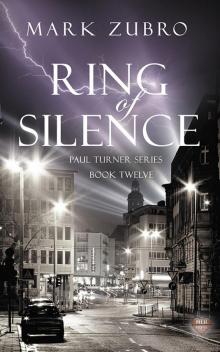 Ring of Silence
Ring of Silence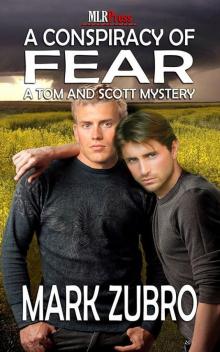 A Conspiracy of Fear
A Conspiracy of Fear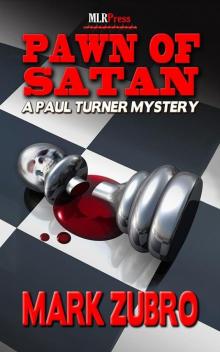 Pawn of Satan
Pawn of Satan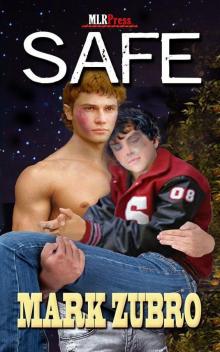 Safe
Safe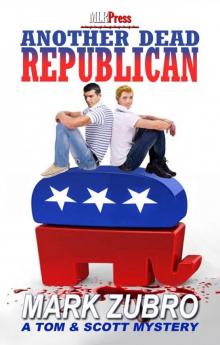 Another Dead Republican
Another Dead Republican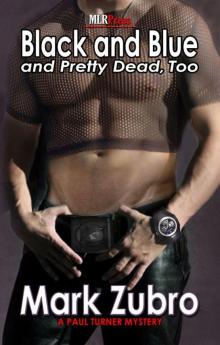 Black and Blue and Pretty Dead, Too
Black and Blue and Pretty Dead, Too Alien Home
Alien Home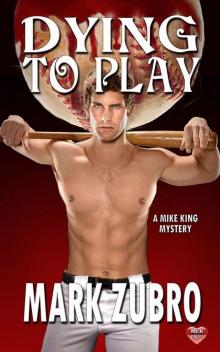 Dying to Play
Dying to Play Alien Victory
Alien Victory